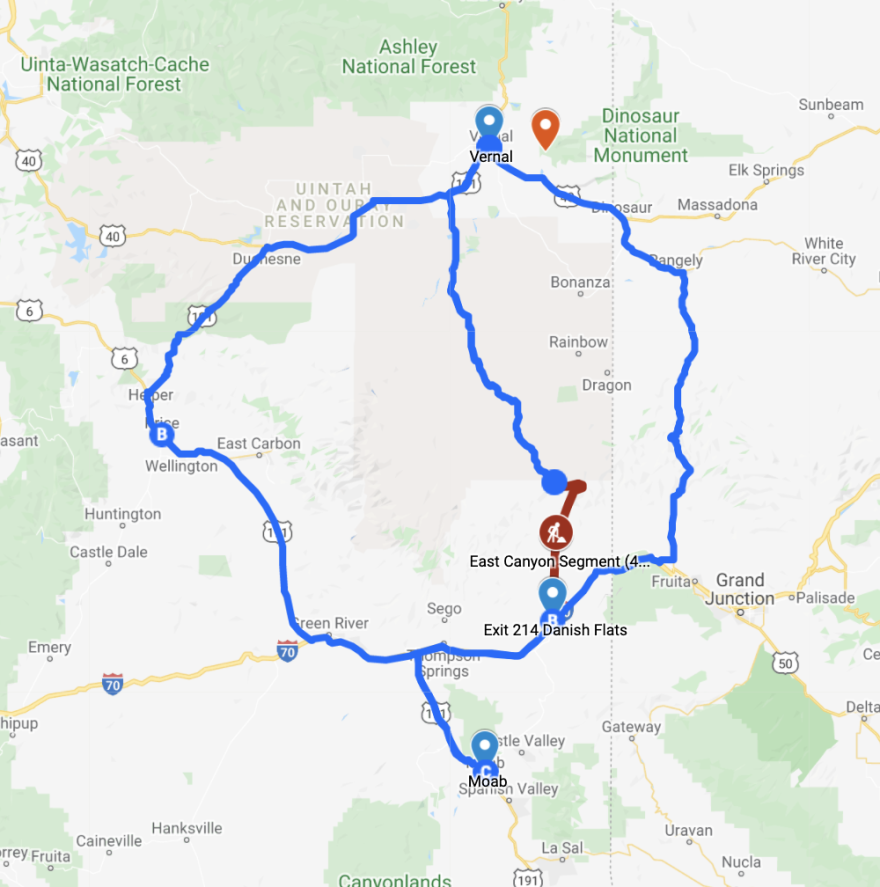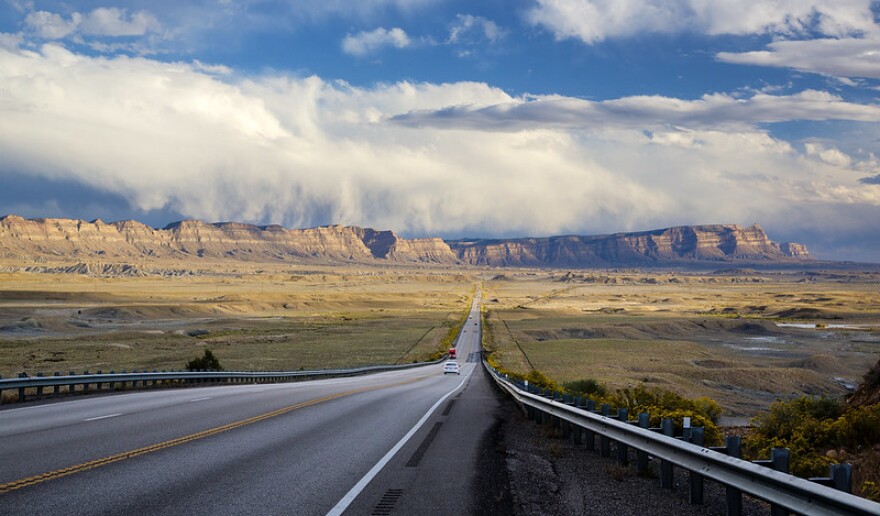A controversial highway through the Book Cliffs in Grand County won't go forward at this time.
A group of rural counties called the Seven County Infrastructure Coalition voted unanimously to suspend the project in a meeting Friday, citing opposition from Grand County, where the highway would be located.
The 35-mile road, which was first proposed in the 1980s, was estimated to cost around $350 million dollars in 2015. Originally, it was meant to move oil out of the Uinta Basin, but now project proponents say it’s meant to connect tourist destinations in eastern Utah, like Dinosaur National Monument and Arches National Park.

“[The road] was one of the most exciting things that our travel board contemplated,” said Mike McKee, executive director of the coalition and a former Uintah County commissioner. “How valuable we felt making that connection to the south and down into Grand County would be.”
But most Grand County residents see the road as a waste of taxpayer money, since it would only shorten the journey from Vernal to Moab by a few minutes, and it would have negative environmental impacts on the Book Cliffs, which are home to herds of elk and other animals.
Grand County has consistently opposed the road since it was first proposed, according to County Commission Chair Mary McGann.
“This is why I’m in office,” she said. “The previous commission supported putting an energy corridor through the Book Cliffs, and that’s why there was a big change six years ago when I got elected.”
Although the coalition cited Grand County’s opposition as the reason it suspended the project, McGann said the real reason is likely that the coalition couldn’t secure right-of-way for the road.
The current proposal for the road would run through East Canyon in the Book Cliffs, primarily on public land managed by the Bureau of Land Management and a privately owned 640-acre ranch. The owners of the ranch, Lee and Debby Elmgreen, said the highway was going to run right next to their house.

“I’d be looking out my window and seeing a three-lane paved highway with trucks going through, 10 to 15 feet from my house,” Debby Elmgreen said. “Rather than seeing the elk migrating through, I would see a highway.”
They said they rejected an offer from the Seven County Infrastructure Coalition to relocate them to a new property. And on Nov. 16, they sent a letter to the BLM asking it to reject the coalition’s right-of-way application.
A spokesperson for the BLM said the coalition withdrew its right-of-way application for the highway shortly thereafter on Dec. 2. Grand County also wrote a letter to the BLM asking it to reject the coalition’s right-of-way request back in September.



